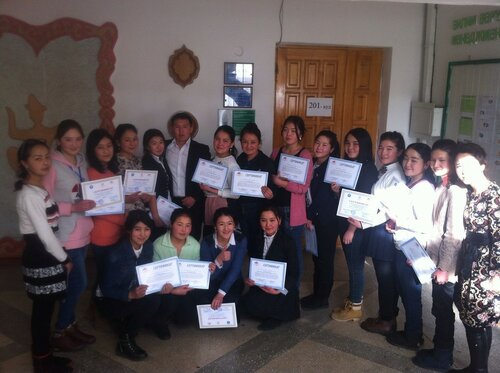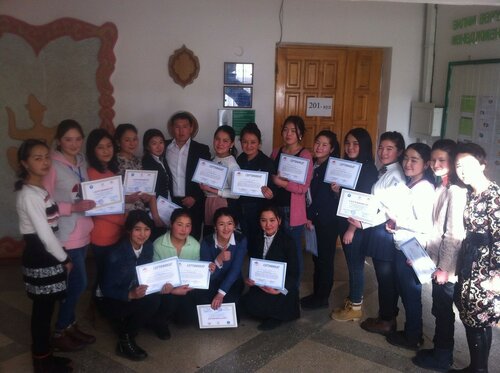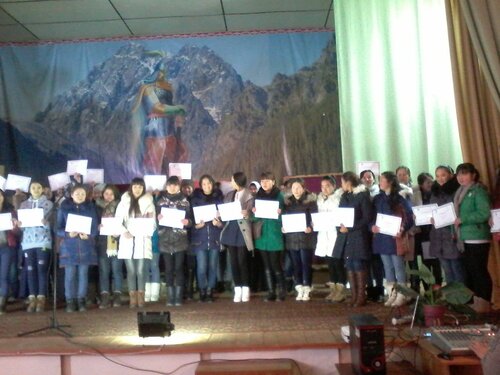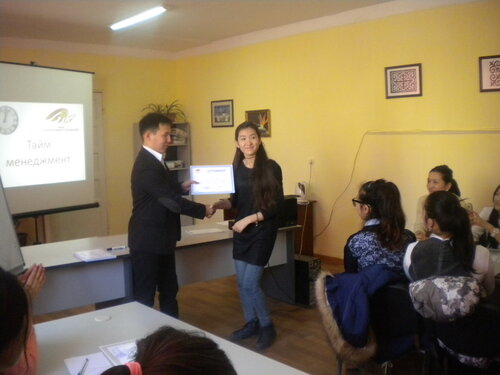Winter Schools for natural and technical sciences (STEM) finish in 5 regions of Kyrgyzstan
January 26, 2016, 06:00
Winter schools for natural and technical sciences for upper class female students were completed January 23 in Naryn, Karakol, Talas, and Osh cities. Young women of Batken and Osh also were graduates of the winter school, taking courses in computer literacy.
As a reminder, STEM winter schools in Kyrgyzstan’s 5 regions began January 11. Their goal was to train upper class female students in the hard sciences such as mathematics, information technology, physics, and chemistry in order to prepare them to be technical specialists. Additionally, the goal was to increase female teachers’ computer literacy through working with computers and interactive smart boards so that they can use them in their own teaching.
In total, 194 female students and 110 female teachers were taught during the winter school.
The winter school had an influence on the girls’ choices of professions. For example, more than 40% of the girls who participated in Talas decided to enter natural-technical and engineering specialties upon completion of their studies.
Those responsible for the organization of the winter schools also had this to say: During laboratory work in chemistry or physics, the progress and interest of the girls could be observed through their work with experiments. After the classes many said they found physics and chemistry to not be so complex or boring and that they were able to achieve a level of success in their work. During the lessons the girls would ask questions and stay after class, asking for extra lessons related to the themes that were taught. This shows that they have an interest in the hard sciences.
In addition to the basic subjects taught in Naryn, courses were given in critical thinking, public speaking skills, and time management through the support of The “Progressive Initiatives Foundation” KF. According to statements made by the girls, these trainings helped them broaden their horizons and develop all kinds of skills for themselves.
Overall, the teachers themselves were satisfied with the work of schools and noted the need for schools during the holidays, both summer and winter.
It is also necessary to note that the Foundation has been supporting STEM directed work since 2014. These schools are operating through the project “Women in Technology and Science” under the direction of The “Initiative of Roza Otunbayeva.” STEM stands for S – science, T – technology, E – engineering, and M – mathematics, and various kinds of education programs are actively being implemented through the concept of STEM-education in many countries.


